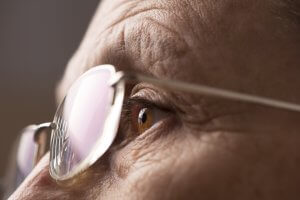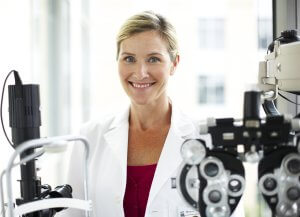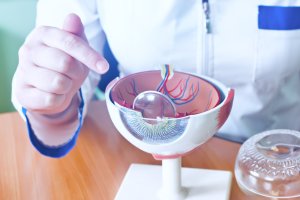Macular Degeneration Specialists

Voted Best of Berks—
eight years in a row!
Macular degeneration specialists are medical professionals who specialize in the diagnosis and treatment of macular degeneration, a chronic eye condition that affects the macula. This central part of the retina is responsible for sharp, detailed vision. In older adults, macular degeneration is a leading cause of vision loss. The condition can significantly impact a person’s quality of life.
Tell me more about macular degeneration
The two main types of macular degeneration are dry macular degeneration (also known as non-neovascular or atrophic macular degeneration) and wet macular degeneration (also known as neovascular macular degeneration). Both types involve the progressive deterioration of the macula, but they have different underlying causes and treatments.
The exact causes of macular degeneration are not fully understood, but several risk factors have been identified. These include advancing age; the condition is more common in individuals over 50, which explains why the condition is often referred to as age-related macular degeneration (AMD). Other risk factors include family history, genetic factors, smoking, obesity, high blood pressure, and prolonged exposure to sunlight.
Symptoms of macular degeneration can vary depending on the stage and type (wet or dry). In the early stages, individuals may not experience any noticeable symptoms. However, as the disease progresses, the following signs and symptoms may become apparent:
- Blurred or distorted central vision: The central vision becomes hazy or distorted, making it difficult to see fine details, read, or recognize faces.
- Dark or empty areas in the central vision: A blind spot or a dark spot may appear in the center of the visual field.
- Decreased color perception: Colors may appear less vibrant or washed out.
- Difficulty adapting to low light: Vision may worsen in dimly lit environments.
- Straight lines appear wavy or crooked: A common early symptom of wet macular degeneration is the appearance of distorted lines.
Macular degeneration treatment
Macular degeneration cannot be cured, but symptoms can be alleviated and progression can be managed. There are various treatment options, and the choice of treatment depends on the type and severity of the disease.
For dry macular degeneration, treatment primarily focuses on lifestyle modifications and nutritional supplements. A diet rich in antioxidants, vitamins C and E, zinc, and lutein/zeaxanthin may help slow the progression of the disease. Regular eye exams are essential for monitoring the condition.
Wet macular degeneration requires more aggressive treatment to prevent further vision loss. We sometimes recommend injections of anti-vascular endothelial growth factor (anti-VEGF) drugs; this is the standard treatment approach for wet AMD. These medications are injected directly into the eye to inhibit the abnormal blood vessel growth and reduce leakage and bleeding in the macula. Photodynamic therapy and laser therapy is another form of treatment that may be used in certain cases.
In addition to medical treatments, our macular degeneration specialists may recommend low vision aids and rehabilitation to help individuals preserve their remaining vision and maintain independence. These may include magnifying devices, specialized glasses, and vision training.
Come see us
Regular eye examinations are crucial for early detection and treatment of macular degeneration. Prompt intervention and ongoing management under the care of a macular degeneration specialist can help slow the progression of the disease, preserve vision, and improve quality of life for individuals affected by this condition. Come see us today at one of our convenient locations at Eye Consultants of Pennsylvania.
Find a Doctor
Physician information including education, training, practice location and more.
Schedule an Appointment
Call 800-762-7132 or make an appointment online.





